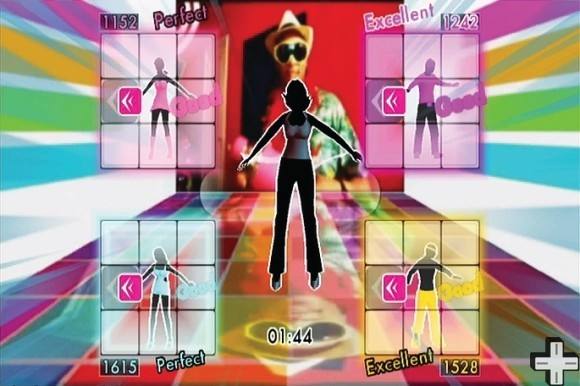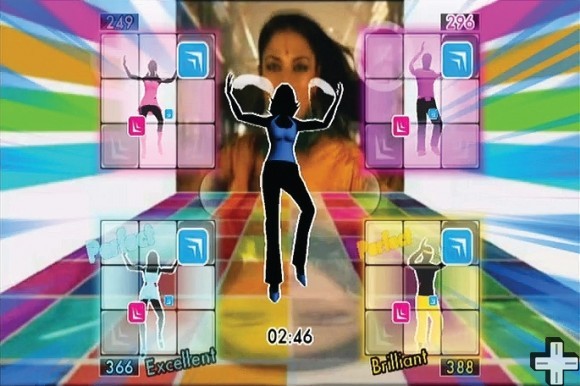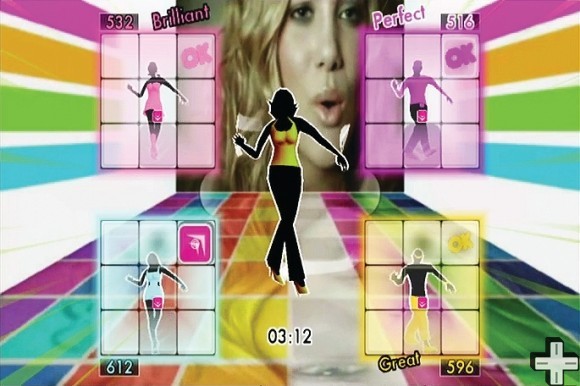We Dance

We Dance is literally a mix of Just Dance’s upper body movements and the over complex, impossibilities of some of the hardest DDR that you’ve ever played. At the same time. Depending on the mode of play, will depend upon which part of your body you’re moving. There are seven modes of play, Charts, Dance TV, Dance School, Warm Up, Dance Shop, We Dance and Party; however, the most time will be spent in We Dance.
We Dance is really the heart and soul of the game and features three difficulty settings. These are Easy, Medium and Hard, or in physical terms translates to Hands, Feet and Both. It’s a challenging concept, let alone a challenging act of co-ordination. Unlike many other dance and singing games, there’s a very large variety of music to choose from and what sets We Dance apart from many of its competitors is that the music is more often than not the actual singer, with the original music video playing as well. This is something to be heralded, as even some of the best karaoke bars in Brighton use “pretend” music, and it can really detract from the overall enjoyment of the event.
Each of the tracks have their own difficulty setting based on a five star scale; this scale isn’t always that indicative of what you would expect difficulty to be. After all, you would expect a techno, rock or dance track to be fairly challenging, but in many cases it’s actually easier than things like Saturday Night. Whilst playing with the “Hands” mode, you are presented with a person who looks like a clothed iPod advert from 2004, dancing away. Your goal is to follow their basic movements whilst holding the Wii Remote. Aside from practice and memorisation, there’s no directional arrows ala Samba de Amigo, the hands mode is not only very challenging – it also makes you feel daft as there’s no lead on what you’re meant to be doing.
Feet Mode is, as to be expected, the bread and butter of the game. With the same tracks as with Hands Mode, the five star difficulties has been changed to reflect the different dance moves. The sides of your body are divided into colours and when played properly, it really increases the difficulty of the game.

We Dance is a combination of two styles of games, Just Dance and any DDR in an arcade up and down the country, both games are very good as stand alone titles. In fact, DDR has been around for so long that it’s almost a staple of the bowling alley. The combination of the two in We Dance is unfortunately a little lacking and this is due to the very steep learning curve with the arm movements. The DDR element of We Dance is first class, and not only challenging but the dance mat that comes with We Dance is robust, responsive and doesn’t move all around the floor like many mats of yesteryear.

Warm Up mode is a step to the left for most games, it encourages you to stretch your muscles to ensure that you’re not straining yourself. Dance School is, as the name suggests, a practise area that allows you to perfect your dancing without impacting your scores in-game. There’s also some downloadable content available as well, in the shape of additional songs for only a couple of hundred Wii Points.
Overall We Dance is a strange combination of upper body and lower body movement. The upper body mode needs an investment of your time before it’s playable and the lower body mode is near perfect.








